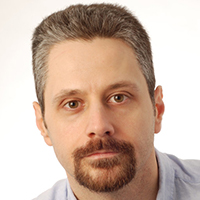AI and ConsciousnessCo-leads: Stephanie Hare and Turhan Canli ActivitiesPsychological Science with Big Behavioral Data: The Past, Present and FutureMonday, March 18, 1:00pm ET Today, the unprecedented access to both vast amounts of human-generated data — and the computational power to analyze it — has led to a rapid reshaping of the social sciences. This presentation will explore how we learn about people using big data, including language, images, and online behaviors. We'll look at how psychological science has evolved in its use of digital trace information over time, from its formative days to today's digital age. We'll discuss current methods and the huge amount of data available, with peeks into the future that consider both possibilities and ethical concerns. Ryan L. Boyd is an Associate Research Professor of Computer Science at Stony Brook University. His research uses computational methods to understand how verbal behavior reflects and shapes our psychology in everyday life, ranging from individual personality to society-level processes, psychopathology, affective mechanisms, and interpersonal processes. He has authored dozens of free, open-source text analysis applications for social scientists and is one of the lead scholars behind the Linguistic Inquiry and Word Count software. Dr. Boyd’s work has been cited by regulatory bodies/committees including the U.S. National Security Commission on Artificial Intelligence and the European Commission’s Joint Research Centre Report on Technology and Democracy. https://umaryland.zoom.us/j/98896756831?pwd=cUFiZVFoVTcxamUzVXRiZFlPSG1BZz09 Zoom »### The Need for Neurocomputational EthicsMonday, November 27, 1:00–2:30 p.m. EST Special topics in neuroethics are on the rise. Neuro-Computational Ethics, as one of them, deserves more sustained attention and scholarship. The National Academy of Engineering tasked leading technological thinkers with identifying grand challenges for engineering in the 21st century. Most of the challenges and opportunities that they came up with are more or less irrelevant for neuroethics. However, “Reverse-Engineering the Brain” (NAE 2023) is a topic of neuroethical import par excellence. Reverse-engineering the brain as an engineering challenge starts with the premise that general-purpose artificial intelligence has remained elusive because artificial brains have been designed without much attention to real ones. This intersection of engineering and neuroscience promises great advances and brings novel ethical challenges. We can count on engineering’s and neurosciences’ best minds to continue relentlessly pursuing the creation of computers emulating human intelligence, with massively parallel processing and vast connectivity, akin to human neural networks. In this talk, I will review recent work from my NeuroComputational Ethics Research Group (go.ncsu.edu/ncerg) and note areas that need for more sustained ethical reflection, such as implementation of neurocomputational models in AI agents, or technological coupling of brains and computers, and other emerging issues at the intersection of artificial intelligence and neurotechnology. Veljko DubljevićNorth Carolina State University Dr. Dubljević, PhD, is an Associate Professor of Philosophy and Science, Technology & Society (STS) at NC State. Before NC State, he spent three years as a postdoctoral fellow at the Neuroethics Research Unit at IRCM and McGill University in Montreal, Canada. He has a background in philosophy, economics, bioethics and neuroscience. |

